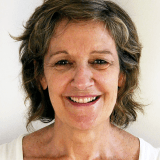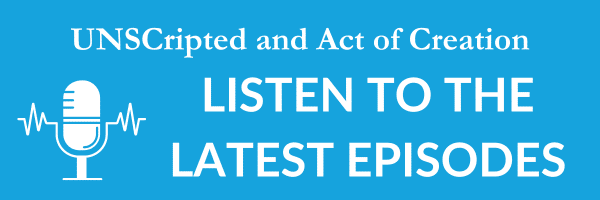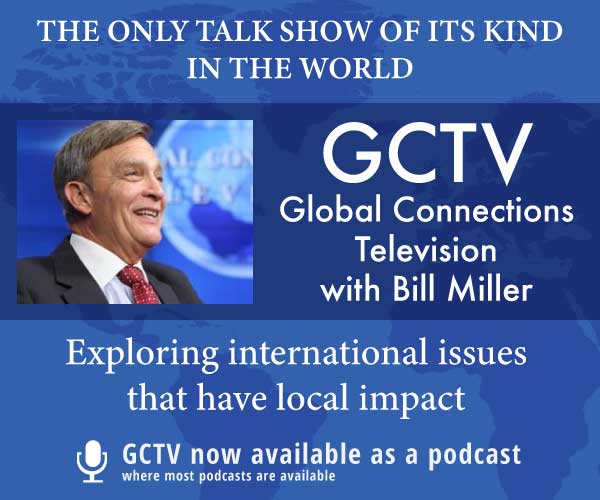
The most important week of the year at the United Nations has arrived, though expectations are low, given that the annual opening debate of the General Assembly is being held virtually because of Covid-19. No global leaders are coming to the debate; no wine-laden luncheons or “bilateral” meetings for them are scheduled; and no reporters will be tripping over one another to rush at Donald Trump, who will not be jetting in from Washington to the UN, in New York City, after months of teasing that he wanted to show up.
In these extraordinary times of sickness, death and economic stress from the pandemic, as well as climate change extremes and high rates of domestic violence, people want to hear how the world leaders will end the chaos as they speak at the annual UN session by pre-recorded videos. Beginning on Sept. 21, the first event marks the UN’s 75th birthday (the United States speaks first); followed on Tuesday with the first day of speeches by the UN’s member states and 119 heads of state lined up, complemented by heads of government and ministers, totaling nearly 200 speakers.
The list on Sept. 22 starts with Secretary-General António Guterres, who promises to be blunt, his office warns, about the dreadful state of the world; followed by Brazil (President Jair Bolsonaro), then the US. The US has the highest number of Covid-19 cases globally, seconded by India and Brazil. The morning also includes Xi Jinping of China, Vladimir Putin of Russia, Emmanuel Macron of France, Cyril Ramaphosa of South Africa and Hassan Rouhani of Iran.
No woman is speaking until midday, Sept. 23, in an amazing reflection of the low number of female national leaders. Each leader is supposed to speak for no more than 15 minutes, but the UN, ever gracious, has no plans to cut anyone off. (Guterres’s speech may be 20 minutes, the UN conceded.)

Greetings from This Week @UN, our summary highlighting the most important news on the UN. The news is drawn from the UN spokesperson’s briefings, our original reporting and other sources. We had a stellar week: our coverage of the UN was cited in an article in The New York Times, prompting our generous grantor, the Carnegie Corporation of New York, tweeting that boost to the world.
And lest you forget: you’re just two clicks away from PassBlue’s latest UN-Scripted podcast episode — previewing fascinating details about the UNGA75. Stéphanie Fillion asks an e-diplomat specialist how global leaders can project themselves like dynamos in their video speeches; reports on what Trump may telegraph in his speech — surely geared to his electorate but also glomming on China, Iran and Joe Biden; and how certain leaders from Latin America, a region overwhelmed by Covid-19, may use their speeches to deflect from the crisis, with insights from Maurizio Guerrero, a Mexican journalist. The episode is also featured in Politico’s Global Translations newsletter.
So please watch for our coverage, starting Sept. 21; we’ll be live-tweeting and sending writeups at the end each day.
We count on you, dear readers, to donate to PassBlue so that we can keep covering the most important stories at the UN — Covid-19, the US and other big powers, women’s issues and human rights — and that we hold the UN to account too. — Editors
Monday, Sept. 14
• Stephen Schlesinger, the American historian and UN expert, begins his op-ed for PassBlue darkly: “After President Trump’s nearly four years in office, we still do not have a good answer why the president has repeatedly deferred to Vladimir Putin on major issues. This is a central question that we face as a country,” he writes, including on the US presidential election. But Schlesinger has a strong idea of what Trump wants from Putin.
• Spokesperson’s briefing: The UN mission in Libya (Unsmil), now one of the most volatile countries in the world, expressed “grave concern” over reports that one civilian was killed, three were injured and numerous other demonstrators were arrested on Sept. 12, amid reports of “excessive use of force by eastern authorities against peaceful demonstrators in the city of al-Marj.”
Tuesday, Sept. 15
• The Trump administration has tried to trigger a 30-day-clock on extending an arms embargo on Iran that expires on Oct. 18. But the United States’ position, aimed at mandating all UN members to follow along, is opposed by most of the world. So what happens when the clock runs out, on Sept. 20? Evelyn Leopold, a former longtime correspondent for Reuters, reports how the other UN Security Council members will strive to keep the US from getting its way.
• Spokesperson’s briefing: The handover took place between the outgoing president of the General Assembly, Tijjani Muhammad-Bande of Nigeria, to the 75th president, Volkan Bozkir of Turkey. Plus: A record 13.4 million people in Burkina Faso, Mali and western Niger need humanitarian help and protection, as “complex and fast-growing crises continue to cause record levels of suffering in the Central Sahel region.” The number of internally displaced people has increased 20 times, to 1.4 million, in less than two years. Compared with last year, the number of severely “food-insecure” people has almost quintupled in Burkina Faso, almost doubled in Mali and increased by 77 percent in Niger, totaling 6.6 million people in the region. The UN humanitarian response plans for the three countries are seeking $1.4 billion at a pledging event on Oct. 20 in Denmark.
Wednesday, Sept. 16
• The General Assembly is going to be a very interesting place this month — even if world leaders are staying home for the debate because of the pandemic. But as two former UN staff members, Harris Gleckman and Khalil Hamdani, write in their op-ed for PassBlue, what Trump will say in his speech on Sept. 22 is the overriding global question. Since 2017, the US has taken 20 actions to deconstruct the post-WW II global governance system, so will Trump announce the US is withdrawing from the UN, as wildly speculated?
• Guterres held a media briefing in which he described the focus of his speech at the General Assembly on Sept. 22: pushing the world to heed his call for a global cease-fire; compelling every country to come together to defeat the virus by ensuring a “people’s vaccine”; reckoning with climate change; and reinforcing the SDGs and multilateralism.
Thursday, Sept. 17
• Spokesperson’s briefing: Guterres spoke at a ministerial meeting on Yemen, where the coronavirus is urgently propelling the need to end the war there, he said. Only 30 percent of the UN response plan for the country, the most devastated in the Middle East, is funded. Yemen has one million Covid-19 cases, as estimated by the London School of Hygiene and Tropical Medicine, and a 30 percent fatality rate, according to Johns Hopkins University.
Friday, Sept. 18
• Spokesperson’s briefing: Today is the first International Equal Pay Day. Across the world, women are paid less than men, with the gender-pay gap estimated at 23 percent globally. In his message to mark this day, Guterres said that people need to ask why women are relegated to lower-paid work; why female-dominated professions have lower salaries, including jobs in the care sector; why so many women work part time; why women see their wages decrease with motherhood while men with children often enjoy a salary boost; and why women hit a ceiling in higher-earning professions.
YOU CAN KEEP DEMOCRACY ALIVE: PLEASE DONATE TO PASSBLUE, A NONPROFIT MEDIA SITE IN NEW YORK CITY
Dulcie Leimbach is a co-founder, with Barbara Crossette, of PassBlue. For PassBlue and other publications, Leimbach has reported from New York and overseas from West Africa (Burkina Faso and Mali) and from Europe (Scotland, Sicily, Vienna, Budapest, Kyiv, Armenia, Iceland and The Hague). She has provided commentary on the UN for BBC World Radio, ARD German TV and Radio, NHK’s English channel, Background Briefing with Ian Masters/KPFK Radio in Los Angeles and the Foreign Press Association.
Previously, she was an editor for the Coalition for the UN Convention Against Corruption; from 2008 to 2011, she was the publications director of the United Nations Association of the USA. Before UNA, Leimbach was an editor at The New York Times for more than 20 years, editing and writing for most sections of the paper, including the Magazine, Book Review and Op-Ed. She began her reporting career in small-town papers in San Diego, Calif., and Boulder, Colo., graduating to the Rocky Mountain News in Denver and then working at The Times. Leimbach has been a fellow at the CUNY Graduate Center’s Ralph Bunche Institute for International Studies as well as at Yaddo, the artists’ colony in Saratoga Springs, N.Y.; taught news reporting at Hofstra University; and guest-lectured at the Columbia University Graduate School of Journalism and the CUNY Journalism School. She graduated from the University of Colorado and has an M.F.A. in writing from Warren Wilson College in North Carolina. She lives in Brooklyn, N.Y.













